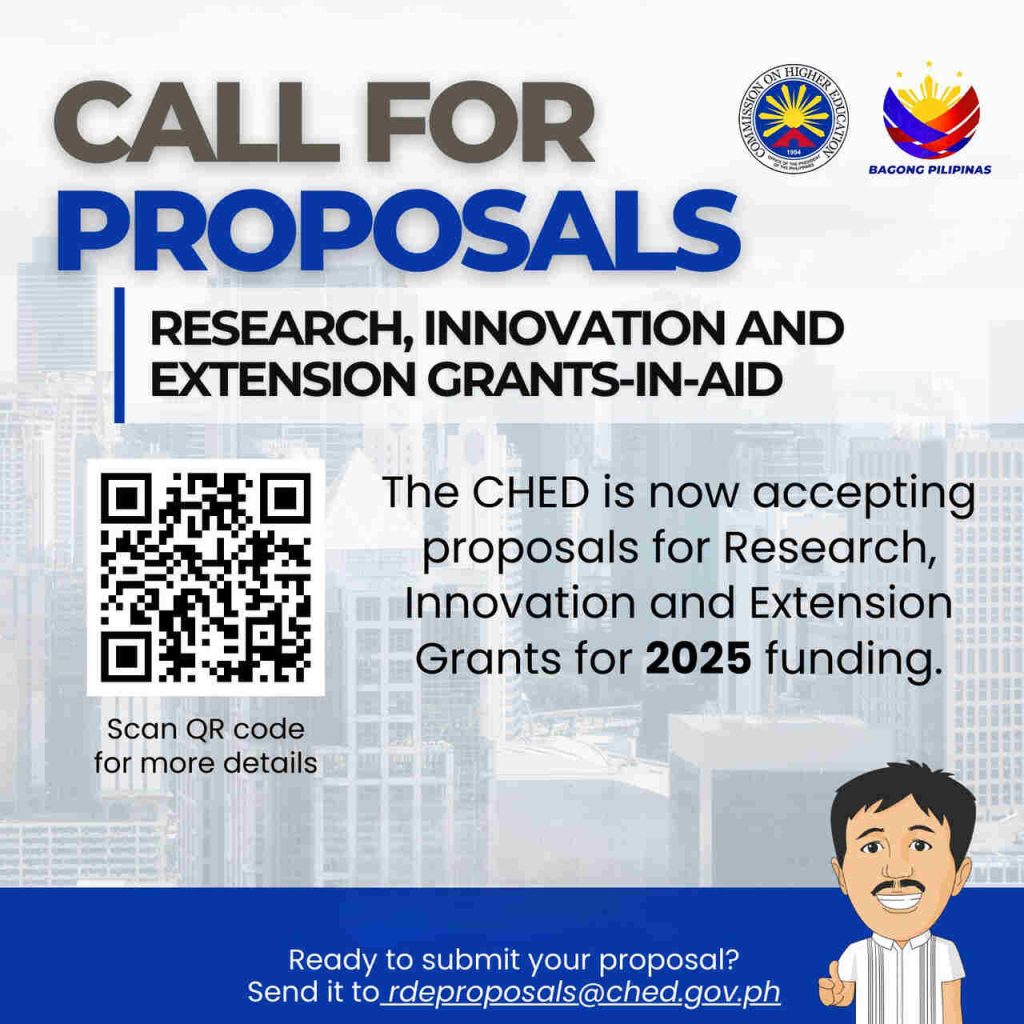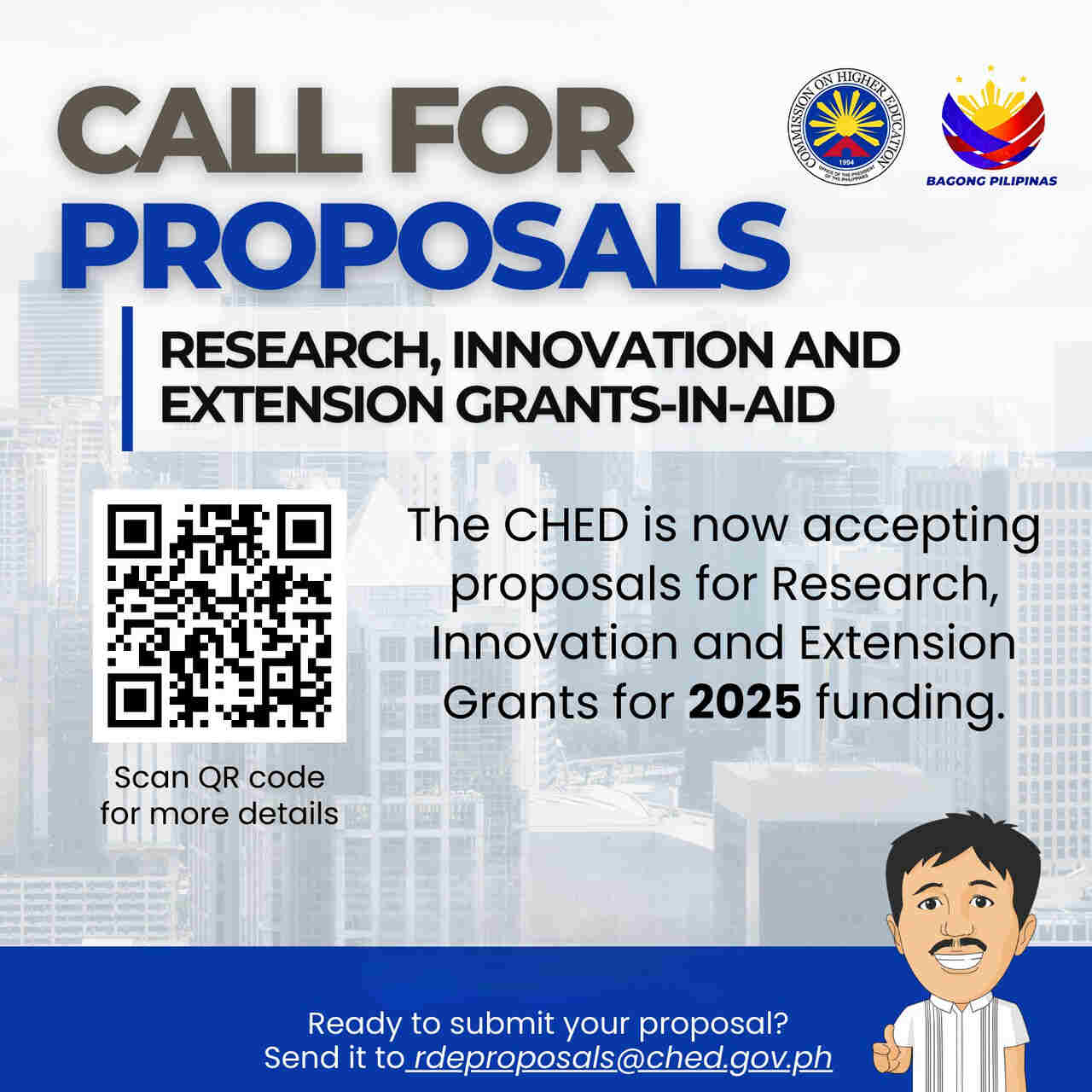The Commission on Higher Education (CHED) is now accepting applications for the 2025 Research, Innovation, and Extension Grants-in-Aid (GIA) Program. This initiative provides funding opportunities for research and extension projects that contribute to the country’s development goals. Through this program, higher education institutions (HEIs) can access financial support for groundbreaking projects in education, science, health, environment, and other key areas.
Understanding the CHED GIA program is valuable for academic institutions aiming to expand research capabilities and address national issues. This guide explains the program details, eligibility requirements, thematic platforms, evaluation criteria, and application process. Whether you are a researcher, faculty member, or institution head, this information will help streamline your proposal submission.
Program Overview
The CHED Research, Innovation, and Extension Grants-in-Aid (GIA) Program is a funding initiative managed by CHED’s Office of Planning, Research, and Knowledge Management (OPRKM-RMD) and designed to support Philippine HEIs in advancing research, innovation, and extension programs. With financial assistance of up to Php 10 million for research projects and Php 2 million for extension projects, the program seeks to build strategic partnerships among HEIs, communities, and industries. Rooted in Republic Act 7722, the program promotes knowledge production, technological innovation, and the transfer of research outputs that address societal and economic development.
In line with CHED’s mandate under the Higher Education Act of 1994, the GIA Program emphasizes research and development as a foundation for inclusive national progress. Proposals submitted to the program must align with six thematic areas: Education for STEAM, Food Production and Security, Health Systems, Environment and Climate Change, Smart Analytics and Engineering Innovations, and Terrestrial and Marine Economy. These areas are aligned with the United Nations’ Sustainable Development Goals (SDGs), underscoring the program’s focus on addressing national and global challenges through collaboration and innovation.

Thematic Areas for Proposals
Proposals submitted under the CHED GIA Program must align with at least one of the six thematic platforms outlined below. These themes are consistent with the United Nations’ 17 Sustainable Development Goals (SDGs):
- Education for STEAM (Science, Technology, Engineering, Arts, and Mathematics): Focuses on improving educational programs and strategies to enhance STEAM learning and skills development.
- Environment, Disaster Prevention, Climate Change, and Energy: Includes projects addressing environmental sustainability, renewable energy solutions, and disaster preparedness measures.
- Terrestrial and Marine Economy: Biodiversity and Conservation: Targets conservation efforts, biodiversity protection, and the sustainable management of natural resources.
- Smart Analytics and Engineering Innovations: Involves projects leveraging smart technologies, data analytics, and engineering advancements for national growth.
- Health Systems: Supports research in health policies, public health programs, medical innovations, and healthcare delivery systems.
- Food Production and Security: Focuses on food sustainability, agricultural advancements, and innovations for ensuring food availability and access.
Benefits
Some of the benefits offered by the program to successful applicants include:
- Research Funding: Under the program, applicants may receive the following funding amounts:
- Up to Php 10 million for a one-year research project.
- Up to Php 2 million for a one-year extension project.
- Honoraria for CHED-Funded Projects: For researchers and project staff involved in CHED-funded projects, honoraria may be provided based on their role and contribution. Rates vary depending on the number of projects managed and the nature of the activities. Sample honoraria rates are as follows:
- Project Leaders: Php 10,200–Php 14,600 per month.
- Technical Staff: Php 4,800–Php 7,500 per month.
- Technical Committee Members: Php 2,000–Php 3,000 per meeting (maximum of two meetings per month).
Note: Honoraria are paid only after project deliverables are accepted and performance is verified.
Target Beneficiaries
The program targets these particular groups in an attempt to foster impactful research and extension projects.
- State Universities and Colleges (SUCs)
- Private, non-stock, and non-profit Higher Education Institutions (HEIs)
- Local communities
- Businesses and industries
- Research and Development Institutes (RDIs)
- Philippine and foreign collaborating institutions
- Families and individuals benefiting from developmental projects.
Who Can Apply?
To qualify for the CHED GIA Program, interested applicants must at least meet the following eligibility criteria:
- Eligible Institutions
- State universities and colleges (SUCs)
- Private, non-stock, and non-profit higher education institutions (HEIs)
- Proposal Endorsements
- For SUCs, proposals must be approved and endorsed by their Governing Boards (GB)
- For private HEIs, proposals require endorsement from the institution’s President.
- Multiple Proposals: If an institution submits multiple proposals, they must provide an official ranked list signed by the institution head. SUCs must also include the corresponding GB approval.
- Financial Compliance: Proponents must have no unsettled liquidation issues under CHED’s Higher Education Development Fund (HEDF)
- Collaboration: Partnerships with other Philippine HEIs or international institutions are highly encouraged.
How Are Proposals Evaluated?
Proposals submitted to CHED will undergo a thorough evaluation by technical experts based on the following criteria:
To qualify for the shortlist, proposals must achieve an average score of 81% or higher. Successful submissions will proceed to the final approval stage by the CHED Commission En Banc (CEB).
Documentary Requirements
Applicants for the program are also expected to prepare and submit the following documentary requirements:
- Accomplished CHED Full-Blown Proposal/RPAG Form
- Brief curriculum vitae (CVs) of the project team
- Ethical clearance certification (if applicable)
- Governing Board (GB) Resolution approving and endorsing the proposal for SUCs or endorsement from the institution’s President for private HEIs
- Official list of ranked proposals (for institutions submitting multiple proposals)
- Accomplishment reports and proof of no unsettled liquidation issues under the Higher Education Development Fund (HEDF)
Step-by-Step Application Process
Follow these steps to apply for the CHED GIA Program:
Step 1. Prepare Your Proposal
- Complete the CHED Full-Blown Proposal/RPAG Form.
- Include the following attachments:
- Brief CVs of the project team.
- Ethical clearance certification.
- Governing Board (GB) Resolution (for SUCs).
Step 2. Submit Your Proposal
- Send the completed proposal and attachments in PDF format via email.
- Use the following email format.
- Recipient: rdeproposals@ched.gov.ph
- Subject: GIA2024-HEI-[Lead Researcher’s Surname]
Step 3. Follow the Deadline
- Proposals must be submitted on or before the designated deadline.
Step 4. Evaluation and Review
- CHED will evaluate proposals based on the stated parameters. Proposals that do not meet the eligibility criteria, are incomplete, or are submitted late will not be processed.
Step 5. Results Announcement
- The list of shortlisted proposals will be released on the designated schedule as announced by CHED.
Important Guidelines and Reminders
For your reference, here are some important guidelines and reminders applicants for the GIA program must keep in mind:
- Applicants must refer to CHED Memorandum Order No. 52, Series 2016, for detailed guidelines on crafting proposals and managing research activities.
- Proponents with unresolved financial issues under the CHED HEDF are automatically disqualified until liquidation concerns are resolved.
- Submissions must strictly follow the prescribed forms and templates available on the CHED website: https://www.ched.gov.ph/call-for-proposals.
Summary
The CHED Research, Innovation, and Extension Grants-in-Aid (GIA) Program provides significant financial assistance to HEIs for research and extension projects. By aligning proposals with thematic platforms such as STEAM education, environment, health systems, and food security, institutions can address national challenges effectively. Eligibility criteria include endorsements from institutional heads, collaboration with other HEIs, and financial compliance. Successful proposals will be evaluated based on innovation, broader impacts, and value for funding. This program serves as an excellent opportunity for HEIs to contribute to sustainable development and societal progress.
